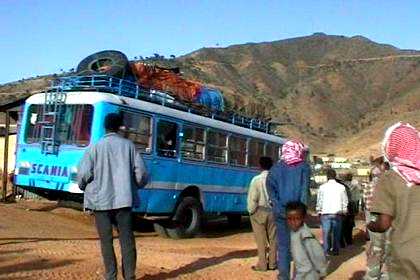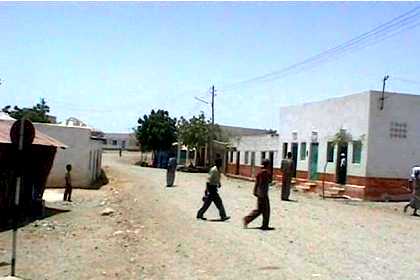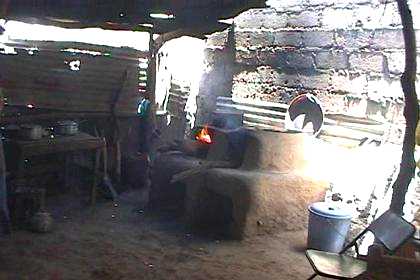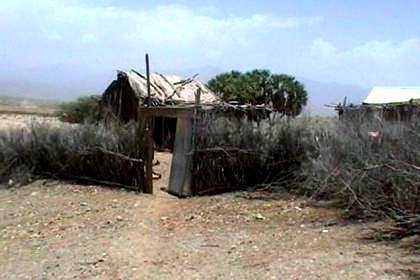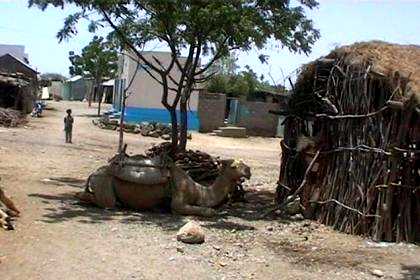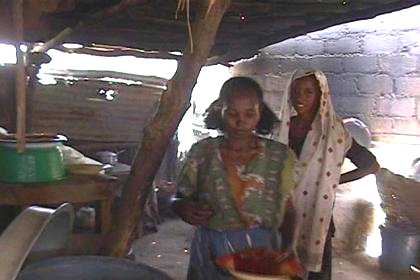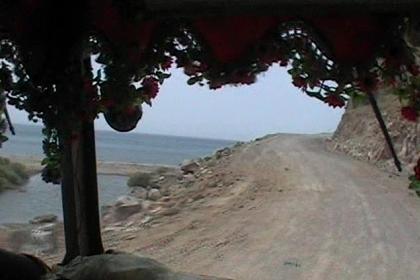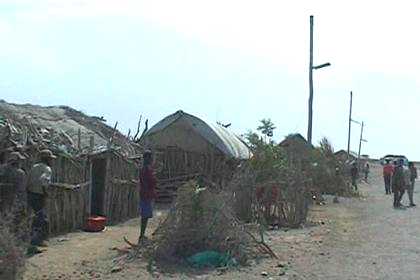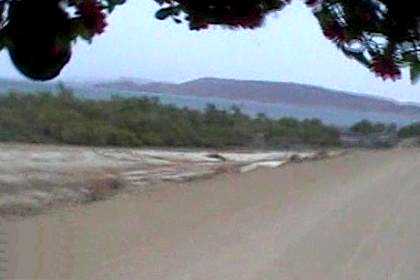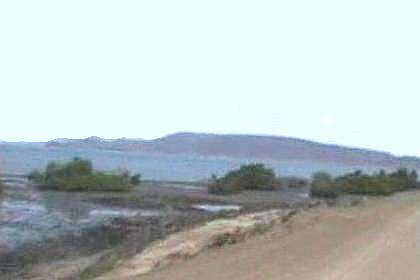| Eritrea May 2003 | ||||||
| Mon | Tue | Wed | Thu | Fri | Sat | Sun |
| 01 | 02 | 03 | 04 | |||
| 05 | 06 | 07 | 08 | 09 | 10 | 11 |
| 12 | 13 | 14 | 15 | 16 | 17 | 18 |
| 19 | 20 | 21 | 22 | 23 | 24 | 25 |
| 26 | 27 | 28 | 29 | 30 | 31 | |
| Eritrea October 2003 | ||||||
| Mon | Tue | Wed | Thu | Fri | Sat | Sun |
| 01 | 02 | 03 | 04 | 05 | ||
| 06 | 07 | 08 | 09 | 10 | 11 | 12 |
| 13 | 14 | 15 | 16 | 17 | 18 | 19 |
| 20 | 21 | 22 | 23 | 24 | 25 | 26 |
| 27 | 28 | 29 | 30 | 31 | ||
| next page | previous | |||||
| 2003 - Part of the family | ||||||
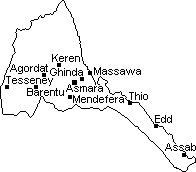 |
||||||
The trip to Assab - May 14th 2003
At 3:45 Feshaye drops me at the bus station. It appears no one is in time. I am the first passenger. It is long after 4:00 when the first buses and passengers arrive at the bus station. The bus, with licece plate number 04464 is an old Scania, A powerful bus for the long distances. We have to wait until 5:00 to get into the bus. The ticket collector reads the names from his list. I am the first to take my seat. Cargo is loaded on the roof and the engine of the bus is tested.
The bread I bought for 3 Nakfa just before I entered the bus tastes terrible. It must be a few days old. But I do not dare to through it away. So many people did not buy it because the bread it is to expensive for them. Feshaye will call his brother in Assab and hands me a small note explaining who I am. Maybe he will wait for me at the bus station. Feshaye tells me his brother operates a taxi in Assab, so he can show me the city for a nice price.
The bus to Tessenei, Barentu and Agordat is waiting next to us. Have to try that on my next trip to Eritrea. The various regions in Eritrea have their own bus station in Asmara. The long distance buses to Assab and Tessenei share the bus station with the Massawa buses. At 5:30 we finally leave. The bus sounds its horn several times to give the last passengers a chance to get on board.
The front window of the bus is decorated with festoons and pictures of saints. I assume the will protect the bus during the trip. Also against the front window is a lot of packages. Must be express mail for Assab and the various villages in between. The radio plays loud Tigrinya music to make it a pleasant trip.
The speed of the bus seldom exceeds 40 kilometers per hour between Asmara and Nefasit. In the sharp bends the bus has to decelerate to 10 kilometers. Beneath the road the railway cuts itself through the landscape. A P&O 20 feet sea-container lays, heavily damaged, not far from the truck that had to deliver it. It appears the driver forgot to take the bend. The road itself is safe. Our bus and the driver look good too.
Every once and a while the bus has to slow down to give way to one of the many trucks loaded with big white bags filled with wheat coming from the port of Massawa. Warnings are painted against the mountains: "Drive slow, keep to the right", to give attention to extremely risky situations. Along the road children walk to school. The want a ride. The bus does not stop.
At 7:00 we arrive in Nefasit. A wrecked truck blocks the main road. The bus has to pass using a deviation through Nefasit. When the situation gets to risky, all passengers have to leave the bus. The driver will be the only one to risk his live in steering the bus from the steep and narrow unpaved roads through Nefasit.
Just after 8:00 we pass Ghinda. We start to feel the sun. It is getting hotter. At 10:00 when we pass Massawa, the bus feels like a sauna and at 10:30 the bus has his first flat tire. At noon we have lunch in Ghela'elo. Just after 16:00 we have a second flat tire and at 19:00 when it is completely dark, the headlight of the bus give up. I am afraid we will have to sleep in the desert. The driver refuses to continue the trip without illumination. It takes them 30 minutes to find the cause. The trick to repair the radio-cassette player was the cause of the trouble.
At 21:30 we arrive in Edi, a small village where most of the houses are huts made of twigs. The bus stops at a beach pavilion, where we are supposed to spend the night. This is the most poor hotel I have ever seen. Those who know have the first class beds, under the tarpaulin, against the wall. My bed is outside, in the open air. The charge is 10 Nakfa per bed. Afraid I will not be able to sleep, I decide to get drunk. It does not work. The body is crying for liquids and energy in this heat. When the rest of the passengers goes to bed, I find myself a place to piss and try to get some sleep.
Chances for rain are 0%, but what about my luggage and my video camera? Will it be there next day? I secure the bag with the camera to the belt of my trousers and hide the money and the passport deep in my trousers. They have told my I should not worry about thieves, but I do not want to take any unnecessary risks.
The bus snaking on the risky diversion through Ghinda.
Stopover in Ghela'elo - Eritrea.
Kitchen of a small restaurant in Ghela'elo - Eritrea.
Stopover in Ghela'elo - Eritrea.
Stopover in Ghela'elo - Eritrea.
Kitchen of a small restaurant in Ghela'elo - Eritrea.
The road to Assab following the Red Sea coast.
Stopover in Thio - Eritrea.
Small scale salt panes and mangrove forest near Thio - Eritrea.
Mangroves near Thio - Eritrea.
